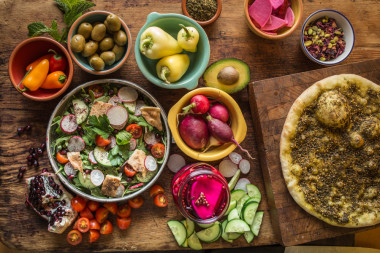Can a Tiny Restaurant Surcharge Move the Needle on Climate?
Summary
The Perennial restaurant was the first carbon-neutral restaurant in the world. Myint and Leibowitz, the owners, were motivated by the knowledge that agriculture and food systems contribute nearly a third of greenhouse gas emissions worldwide. They wanted to make their industry part of the solution.
After a few years of running the restaurant, Myint and Leibowitz realized that they needed to do more to make a difference. They closed the restaurant and expanded the mission of the nonprofit Zero Foodprint, which asks restaurant customers and other participating businesses to give one percent of their sales to a pool that funds regenerative agriculture.
So far, Zero Foodprint has funded 96 projects impacting over 7,000 acres with a benefit equivalent to restoring over 80,000 tons of CO2 emissions. Myint envisions a state-wide funding tool, where a dollar on the trash bill could go directly to these projects.
Myint believes that regenerative agriculture is the future of food and that it can help solve the world’s carbon dioxide problem. He is working with state and local governments to implement Zero Foodprint programs, finding that existing USDA programs are oversubscribed and overly bureaucratic.



Add comment